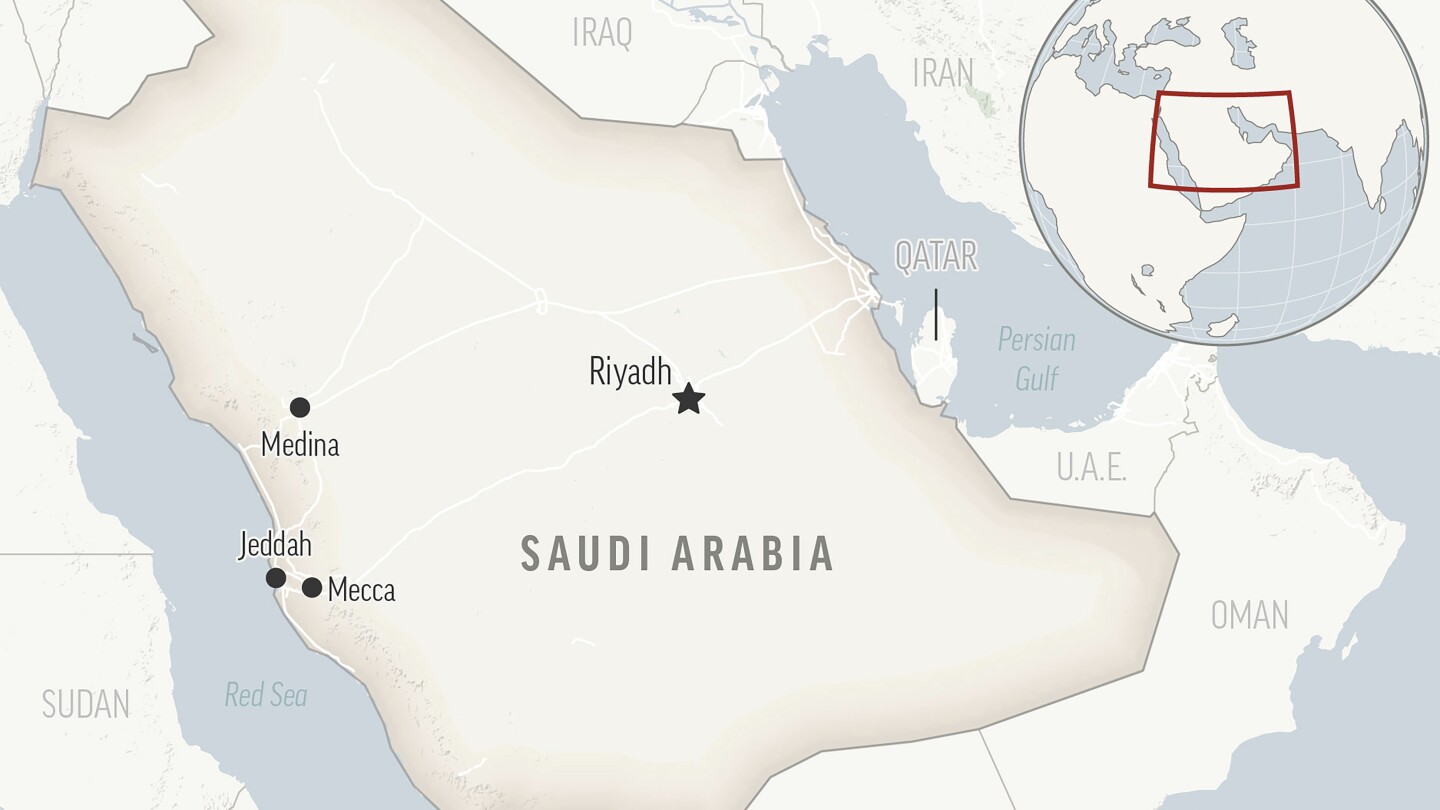DUBAI, United Arab Emirates (AP) — A radical Sunni scholar whose criticisms of Saudi Arabia’s government and the West drew praise from the l ate al-Qaida founder Osama bin Laden should be immediately tried or released from a yearslong arbitrary detention by the kingdom, independent experts working with the United Nations said Wednesday.
Safar bin Abdulrahman al-Hawali had been one of the prominent voices behind the Sahwa, or “Awakening” movement, in the kingdom, which called for strictly observing hard-line Wahhabi beliefs and criticized its royal Saud family. Al-Hawali has been held without trial since 2018 as part of a wider crackdown on all dissent under King Salman and his assertive son, Crown Prince Mohammed bin Salman.
Al-Hawali, now in his mid-70s, was cited specifically by bin Laden in his 1996 declaration of war on the United States as one of the clerics detained by the kingdom purportedly on the order of the Americans.
The U.N. Committee on the Rights of Persons with Disabilities called for al-Hawali’s release, saying ailments from strokes he suffered in 2005 and 2006 have made it difficult for him to speak or care for himself.
“He has chronic apraxia of speech, which precludes him from moving his facial muscles to speak and be understood,” the committee said in its 16-page report. “He is unable to move around alone and has a broken pelvis and renal failure that require constant medical care.”
Saudi officials did not immediately respond to a request for comment. However, the committee’s report described Saudi Arabia as contending that al-Hawali “enjoys his legal rights and all available services and programs, that his health is ‘good’ and that he receives medical care like other detainees.”
Al-Hawali, now in his mid-70s, was cited specifically by bin Laden in his 1996 declaration of war on the United States as one of the clerics detained by the kingdom purportedly on the order of the Americans.
His preachings on cassette included decrying the American presence in Saudi Arabia, home to the holiest sites in Islam, during and after the 1991 Gulf War. The cleric also wanted to limit the powers of the royal family. The wider Sahwa movement fell under the umbrella of the Muslim Brotherhood, a pan-Arab Islamist political movement long viewed with suspicion by the hereditary rulers of the oil-rich Gulf Arab states.
In 2018, al-Hawali published what was described as a 3,000-page book called “Muslims and the Western Civilization” that included criticisms of Prince Mohammed and the kingdom’s at-the-time quiet communications with Israel. Saudi officials immediately detained him after that.

